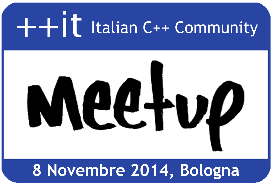C++11: Let's Write a "Hello, Lambda!" -- Ovidiu Cucu
Fresh on codexpert:
C++11: Let's Write a "Hello, Lambda!"
by Ovidiu Cucu
From the article:
... Getting rid of optional parts, we can make our program simpler, as follows:
// Example #2 #include <iostream> int main() { [] { std::cout << "Hello Lambda!"; } (); }Further, let’s take a little deeper look in the lambda introducer part...

 For your Friday reading pleasure, we recently came across one of the very earliest C++ standardization papers written, with number N0007 (or call it "007"):
For your Friday reading pleasure, we recently came across one of the very earliest C++ standardization papers written, with number N0007 (or call it "007"):
